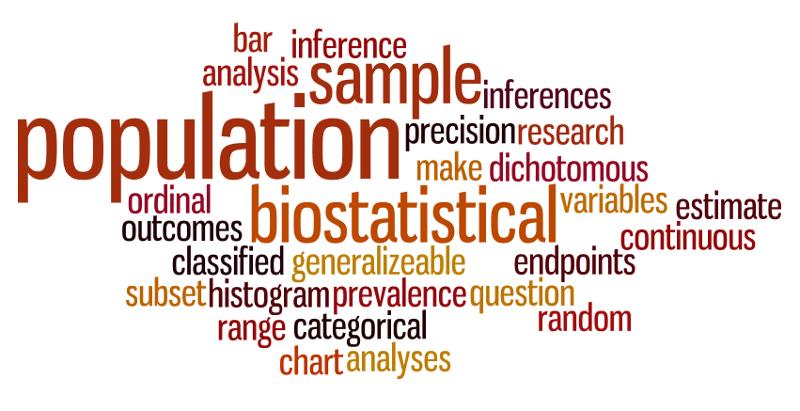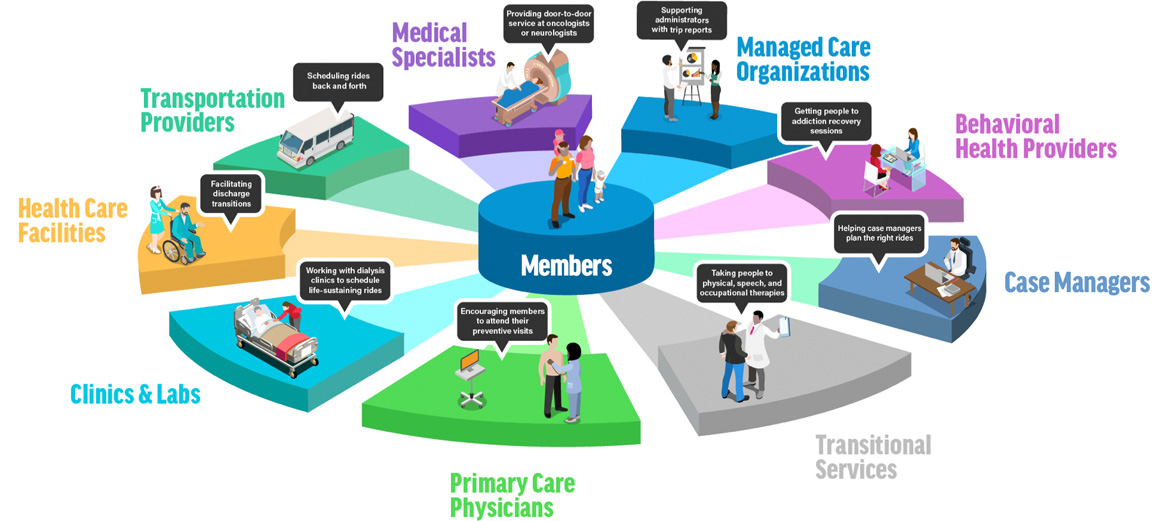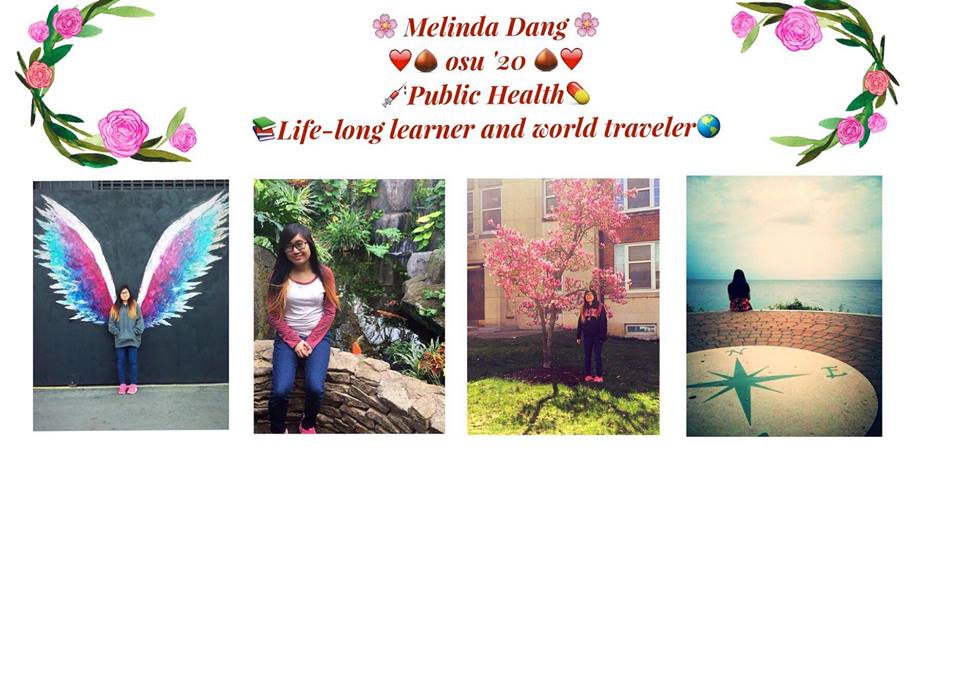In this post, I speak candidly of my experiences as a first-generation graduate student. As of yesterday, I have finished one semester of graduate school at The Ohio State University! I hope that I passed all of my classes. Final grades are being updated daily. I feel so relieved and want to share how the semester unfolded.

Source: Boston University
Biostatistics I was the most difficult class for me. I have made it through science and math courses before, but growing up and to this day, I am not fond of STEM courses. I am more of a humanities and social sciences person. I did appreciate and adore my biology courses, but the other sciences gave me a hard time. I had to put in more studying and seek out tutoring for classes such as Chemistry and Calculus. These subjects are complex and complicated to me. Thankfully, tutors were kind (for the most part) and teachers took time after school to explain concepts. I also have benefitted from viewing online videos to supplement my instruction. Biostatistics I was difficult and I could have done better by trying to ask for help more often. I was not reviewing the material at the end of each class; if I had reviewed more frequently, I would likely have felt more calm in the class. I was constantly stressed at the fast pace and at the amount of unfamiliar material. My study buddy group, comprised of me and a few other Master’s of Public Health students, was my savior. Up until the end of the semester, I was not sure if I would pass the class because the required grade is B-. Next semester, I take Biostatistics II, this time online.

Source: Oasis Surg
I enjoyed my Intro to Healthcare Organization class. We have lectures with a few guest lectures from professionals in the field. The class has a lot of discussion built into it, primarily at the end of a lecture. The United States does not really have a healthcare “system,” because it is so fragmented and uncoordinated. I enjoyed this course. We covered topics including managed care, vulnerable populations, access, and quality. We had six case study assignments as well as a group presentation. My group focused on access to healthcare among refugees in the United States. The future of healthcare should involve more collaborations, innovation, strong teamwork, and capacity-building.

Source: Health Workforce Technical Assistance Center
I had a Community Health Assessment class, in which I applied my knowledge and research skills to create deliverables and portfolio-ready products. My four-member group for that class prepared a 20-30 page assessment report on the Linden community in Columbus, Ohio. In this document were the following: an executive summary, community description, and summary sheets for our chosen health topics of diabetes, infant mortality, food insecurity, intimate partner violence, and poverty. We included recommendations for these issues plaguing Linden. This paper took a lot of time and effort but I am pleased with the end result! We also presented our findings in a 20 minute presentation to the rest of the class. Another fun part of the class was getting to do a nutritional assessment of convenience stores on campus; I collected observational data on what foods were available and how much shelf space they were given. I would like to do more community health assessments in the future. This class was a nice test-run/trial or introduction to the practice.
Source: Socialmarketing.blogs.com
My Advanced Disease Prevention and Health Promotion class provided me with a wealth of information regarding health behavior theories and insights into how difficult and tricky it is to change behavior, despite individuals having the intention to do so. We learned about financial incentives, ethics, social determinants of health, survey measurement, etc. A major takeaway for me was that no health theory can be used for all problems. All theories have strengths and weaknesses. I am still very interested in and invested in social determinants of health, especially for vulnerable and minority populations, including people of color and LGBTQ communities. Our class included several papers; for two of them, I was to write about a health behavior that I want to change in my own life, and I talked about personal sunscreen application. However, interestingly, I also have picked up the behavior of dental flossing because of the professor mentioning it in class many times.

Source: University of Michigan
My city and regional planning class is called The Socially Just City. I have never taken a class in that field before so it was new to me and I learned so much from the readings, my professor, and my peers. Our class gave me background information on the planning profession and its challenges with balancing interests and goals. We also went over housing, transportation equity, integration vs. separation, diversity, feminism, access, and more. We reviewed numerous case studies where socially just outcomes were not reached. This is a reading- and discussion-intensive class but you gain a lot from it! Students read essays or articles and write discussion posts online. Then we come to class, where students present vital points from those readings to everyone else and we further discuss. Additionally, groups of students write final papers analyzing interventions, policies, or plans to see if they are achieving social justice. This was challenging but I appreciated it and pushed myself out of my comfort zone. My peers provided me with feedback throughout the process.
Academically, I feel at peace with my progress. My GPA is not perfect but GPA does not matter too much. A peer had just reminded me of this and disclosed to me that she does not include her GPA on her resume or CV. It has been a rough semester in terms of adjusting to the rigors of graduate school and navigating a different culture. I do not know how many people in my cohort are first-generation college students and/or first-generation graduate students, but I felt that I had hurdles to overcome. I did not have parents who pursued higher education at all so they could not offer advice for anything. I felt imposter syndrome and that I was not as well-spoken as my peers. I could have participated in classes more, so I am hoping that I feel more comfortable sharing my perspectives because they will enrich the conversations and my peers’ minds. I hope to truly relax this winter break but knowing me, I will want to do something productive each day, such as begin searching for practicum experiences for the summer. Over break, I want to improve my writing and work on personal passion projects.
Socially, it was not until the end of the semester that peers and I got together to socialize. People are busy and also I perceived that I would not have much in common with some people. However, assumptions like this prevent me from getting to know people and finding out that even if we may not have similar experiences or interests, it’s great to learn something new. Throughout the semester, I was spending time with one peer in particular because of our shared struggles and experiences. I did make time to have fun with friends a few times each week. I saw movies, attended student organization events, and went shopping. This is necessary to stay sane and not get too drained by life. I feel affirmed that peers are supportive of me and that we are not competing with one another. I look forward to getting to know my fellow cohort members better.
Financially, I have been managing thanks to generous funding. I try to maintain my budget and check my accounts regularly. I splurged on purchases multiple times this semester because of stress. Nevertheless, I try not to shame myself for doing so but I know to better exert control. A good tip is to think to myself, “Do I need this item, or do I want it? How many times can I use/wear it?”
Mentally, I have struggled. The best methods I have utilized this semester has been sharing openly on social media, talking with friends, and speaking with my therapist. I log my emotions daily using a health app. Maintaining a journal could also be useful because I did that last school year and wrote down the highs and lows of my day as well as what was bothering me. I know I am not in this alone.
To fellow and future graduate students, it will be tough. (Some peers have said it is easy, while it is not the case for me). Something about the process will frustrate you or make you feel less than. I urge you to consider what are these challenges trying to teach you. Mentors have also asked me to think about my “Why” or my purpose for doing what I do. Why am I in public health? Why am I getting this degree? Why does it matter to me that I help further social justice and equity?
What is your Why?
